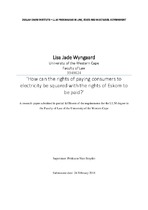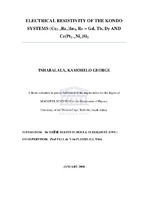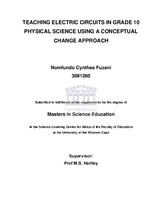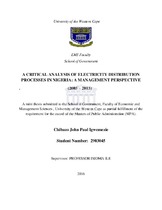How can the rights of paying consumers to electricity be squared with the rights of Eskom to be paid?'
Abstract
Electricity supply can be classified into three stages namely: generation, transmission and distribution, with the functions of generation and transmission being carried out by Eskom. In 2001, Eskom was converted from a statutory body into a public company having a share capital with its entire share capital held by the State. It is a major public entity and therefore an Organ of State and albeit that Eskom is classified as a public company, it is still a State-owned Enterprise. Municipalities purchase electricity from Eskom in bulk in order to carry out the distribution function and manage bulk supply of electricity to end-users in terms of the Local Government: Municipal Structures Act 117 of 1998 (Structures Act). Municipalities re-sell electricity purchased from Eskom to end-users as well as provide free basic electricity to indigent consumers.
Related items
Showing items related by title, author, creator and subject.
-
Electrical resistivity of the kondo systems (Ce1−xREx)In3, RE = Gd, Tb, Dy AND Ce(Pt1−xNix)Si2
Tshabalala, Kamohelo George (University of the Western Cape, 2008)The present study investigates the strength of the hybridization by substituting Ce atom in Kondo lattice CeIn3 with Gd, Tb, and Dy and by changing the chemical environment around the Ce atom in substituting Pt with Ni in ... -
Teaching electrical circuits in grade 10 physical science using a conceptual change approach
Fuzani, Nomfundo Cynthea (University of the Western Cape, 2018)The purpose of this paper is to investigate whether the teaching of electric circuits in Grade 10 Physical Sciences using a conceptual change approach would enhance learners' understanding of the concept. The conceptual ... -
A critical analysis of electricity distribution processes in Nigeria : a management perspective (2005 – 2015)
Igwemezie, Chibuzo John Paul (University of the Western cape, 2016)Nigeria has been experiencing challenges in the distribution of power to the whole country in the past decades. As a result, more than half of Nigeria's population is affected by the ineffectiveness of the distribution of ...




